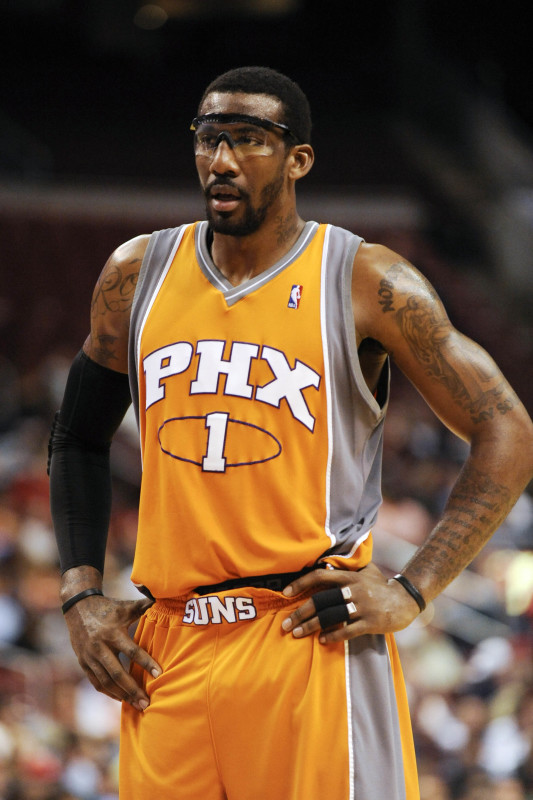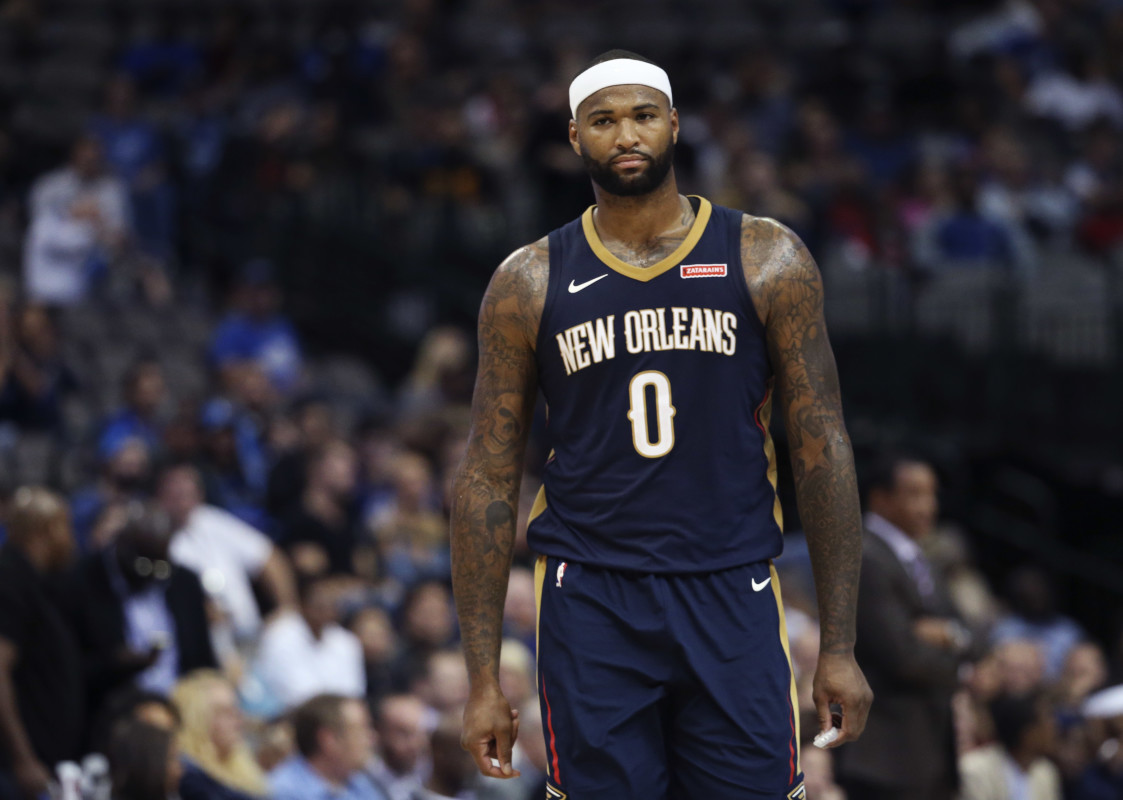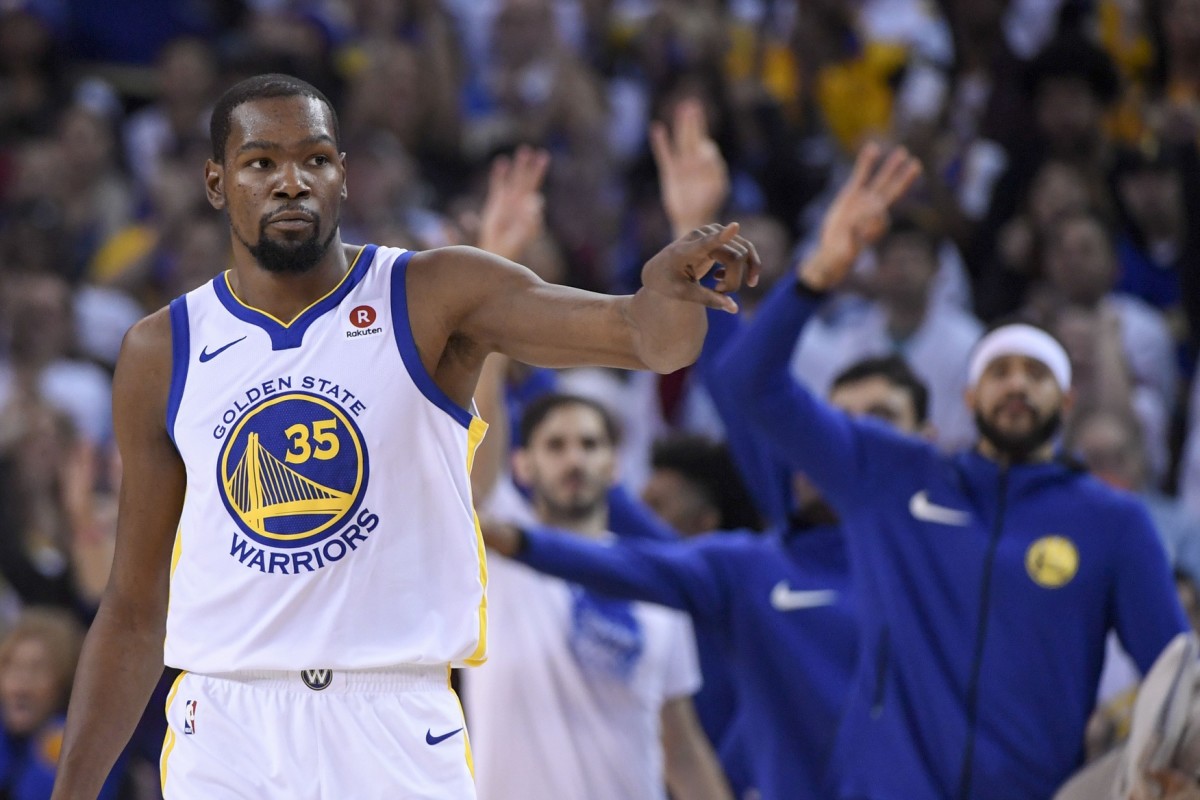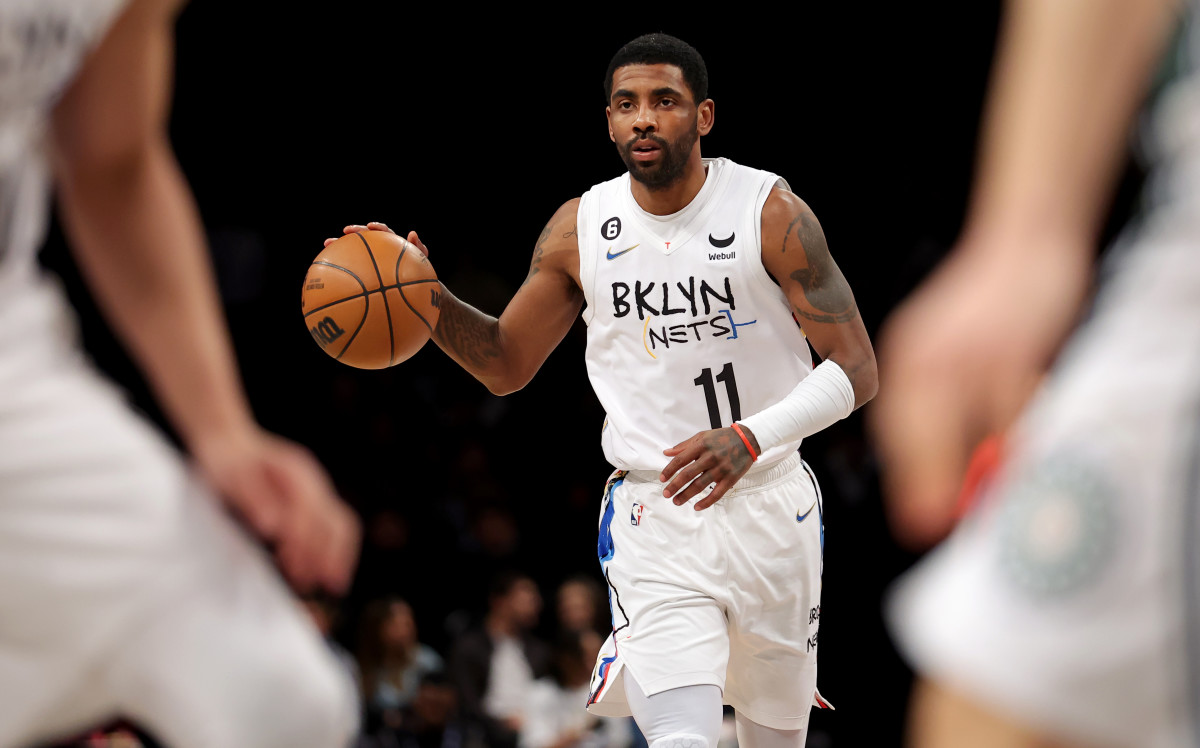
In the NBA, injuries have often played a pivotal role in reshaping championship aspirations, altering the trajectories of both individual careers and team dynasties. From iconic legends to burgeoning talents, the impact of these setbacks reverberates throughout the league, underscoring the fragility of success and the resilience required to overcome adversity.
Join us as we delve into the most shocking NBA injuries of the past five decades, exploring how these pivotal moments forever changed the course of basketball history.
Larry Bird (1991-92)
In the 1991-92 NBA season, Larry Bird, the iconic forward of the Boston Celtics, suffered a debilitating back injury that ultimately forced him into retirement. Bird, known for his exceptional skills and leadership, was a cornerstone of the Celtics' success throughout the 1980s.
During the 1991-92 season, Bird's back issues resurfaced, limiting his ability to perform at the elite level he was known for. Despite his determination to push through the pain, the severity of the injury became increasingly apparent as the season progressed.
Bird’s statistics reflected his diminished playing time and performance due to the injury: he averaged 20.2 points, 9.6 rebounds, and 6.8 assists per game. These numbers, while still impressive, were a stark contrast to Bird's peak years in the league.
The Boston Celtics finished the regular season with a record of 51 wins and 31 losses. However, without Bird at full strength, their playoff hopes were dashed as they were eliminated in the Eastern Conference Semifinals by the Cleveland Cavaliers.
Bird's injury not only marked the end of an illustrious playing career but also served as a poignant reminder of the physical toll professional basketball takes on its athletes. Despite his premature retirement, Bird's legacy as one of the greatest players in NBA history remains firmly intact.
Patrick Ewing (1998-99)
During the 1998-99 NBA season, the New York Knicks faced a significant setback when their star center, Patrick Ewing, suffered a devastating Achilles tendon injury. Ewing, renowned for his dominant presence in the paint and leadership on the court, was a linchpin of the team's success.
Ewing’s season stats revealed his impact: averaging 17.3 points, 9.9 rebounds, and 1.8 blocks per game. These numbers underscored his importance to the Knicks' lineup and their aspirations for a deep playoff run.
The Knicks entered the regular season with promise, finishing with a respectable record of 27 wins and 23 losses in the lockout-shortened season. However, Ewing's absence loomed large as the team prepared for postseason play.
In the playoffs, the Knicks struggled to fill the void left by Ewing's injury. Despite their best efforts, they reached the NBA Finals but ultimately fell short against the San Antonio Spurs in a hard-fought series, losing 4-1.
Ewing's absence was keenly felt, emphasizing the challenges teams face when key players are sidelined due to injury. The 1998-99 season served as a stark reminder of Ewing's invaluable contributions to the Knicks and the impact of injuries on a team's championship aspirations.
Grant Hill (1999-00)
During the 1999-00 NBA season, Grant Hill, renowned for his versatile skill set, suffered a severe ankle injury that sidelined him for the majority of the season. Despite his limited time on the court, Hill showcased his impact with impressive statistics, averaging 25.8 points, 6.6 rebounds, and 5.2 assists per game. These numbers underscored his importance to the Detroit Pistons' lineup and their aspirations for postseason success.
The Detroit Pistons entered the regular season with high hopes but faced adversity due to Hill's injury. They finished the regular season with a record of 42 wins and 40 losses.
In the playoffs, the Pistons managed to secure a playoff berth but were eliminated in the first round by the Miami Heat. The absence of Grant Hill was keenly felt as the Pistons struggled to match up against their opponents.
The 1999-2000 season served as a reminder of Hill's invaluable contributions to the Pistons and the impact of injuries on a team's championship aspirations. Despite their resilience, the Pistons ultimately fell short without their star forward.
Shaquille O’Neal (2002-03)
During the 2002-03 NBA season, Shaquille O'Neal, the dominant center for the Los Angeles Lakers, battled through a foot injury that greatly impacted both his performance and the team's success.
Renowned for his imposing physical presence and ability to dominate the paint on both ends of the court, O'Neal was a key force for the Lakers and one of the league's premier stars at the time.
Despite his injury, O'Neal's impact was evident in his regular season statistics: he averaged 27.5 points, 11.1 rebounds, and 2.4 blocks per game, showcasing his importance to the Lakers' lineup and their aspirations for postseason success.
The Los Angeles Lakers entered the regular season with high expectations, but O'Neal's limited availability due to the injury posed challenges. They finished the regular season with a record of 50 wins and 32 losses.
In the playoffs, the Lakers faced the San Antonio Spurs in the Western Conference Semifinals. Despite O'Neal's efforts to return and contribute, the Lakers were eliminated in six games by the Spurs, falling short of their championship aspirations.
O'Neal's injury proved to be a significant obstacle for the Lakers, as they struggled to reach their full potential without their star center at full strength. Despite the disappointment, O'Neal's performance during the regular season underscored his enduring dominance in the league, and he would continue to be a force to be reckoned with in the years to come.
Tracy McGrady (2004-05)
During the 2004-05 NBA season, Tracy McGrady, the dynamic scoring forward for the Houston Rockets, encountered a significant setback when he suffered a debilitating back injury. McGrady, renowned for his scoring prowess and versatility, was a linchpin of the Rockets' lineup and one of the league's premier stars at the time.
Despite battling through the injury, McGrady's impact was evident in his regular season statistics: he averaged 25.7 points, 6.2 rebounds, and 5.7 assists per game, showcasing his importance to the Rockets' lineup and their aspirations for postseason success.
The Houston Rockets entered the regular season with high expectations, but McGrady's back injury hampered both his availability and the team's performance. They finished the regular season with a record of 51 wins and 31 losses, a respectable mark considering the challenges they faced.
In the playoffs, the Rockets faced the Dallas Mavericks in the first round. Despite McGrady's efforts to play through the injury, the Rockets were eliminated in a hard-fought seven-game series by the Mavericks, ending their postseason run.
McGrady's injury served as a stark reminder of the fragility of health in professional sports and the challenges teams face when key players are sidelined. Despite the setback, McGrady's performance during the regular season underscored his talent and impact on the court, solidifying his legacy as one of the NBA's elite players.
Amar'e Stoudemire (2005-06)

In the 2005-06 NBA season, Amar'e Stoudemire, the high-flying power forward of the Phoenix Suns, encountered a major setback with a knee injury that kept him off the court for a substantial period. Stoudemire, known for his athleticism and scoring ability, was a vital part of the Suns' high-octane offense and their aspirations for postseason success.
Stoudemire's knee injury limited his availability and hampered his performance on the court. Despite his absence, his impact was evident in his regular season statistics: he averaged 20.4 points, 9.6 rebounds, and 1.6 blocks per game before being sidelined by the injury. These numbers underscored his importance to the Suns' lineup and their hopes for a deep playoff run.
The Phoenix Suns entered the regular season with high expectations, but Stoudemire's injury posed a significant challenge to their aspirations. They finished the regular season with a record of 54 wins and 28 losses, a solid performance given the circumstances.
In the playoffs, the Suns faced the Dallas Mavericks in the Conference Finals. Despite Stoudemire's efforts to return and contribute, the Suns were eliminated in six games by the Mavericks, ending their postseason campaign with a sour taste.
Stoudemire's knee injury served as a reminder of the physical toll of professional basketball and the challenges teams face when key players are sidelined. Despite the setback, Stoudemire's performance before the injury highlighted his talent and impact on the court, solidifying his status as one of the NBA's premier power forwards.
Derrick Rose (2011-12)
In the 2011-12 NBA season, Derrick Rose, the dynamic point guard for the Chicago Bulls, faced a career-defining moment when he endured a debilitating knee injury. This setback not only reshaped Rose's future in the league but also dashed the championship hopes of his team.
Rose's knee injury occurred during a playoff game against the Philadelphia 76ers. With only minutes remaining and a comfortable lead, Rose landed awkwardly after driving to the basket, tearing the anterior cruciate ligament in his left knee.
Rose's absence had an immediate and enduring impact on the Bulls. Without their floor general, the team struggled to maintain its level of play both in the regular season and the playoffs. Regarding regular-season statistics for the 2011-12 season, Derrick Rose averaged 21.8 points, 7.9 assists, and 3.4 rebounds per game. However, these numbers were overshadowed by the devastating injury he suffered in the playoffs.
The Chicago Bulls, who had the best record in the league during the regular season, were eliminated in the first round of the playoffs by the Philadelphia 76ers, in a series that was marked by Rose's absence.
Derrick Rose's injury not only impacted the Bulls in the season but also altered the course of his career. Despite his efforts to recover and return to the elite level he had displayed previously, Rose never regained the same dominant form he once had.
Kyrie Irving & Kevin Love (2014-15)
During the 2014-15 NBA season, both Kyrie Irving and Kevin Love, two essential components of the Cleveland Cavaliers' lineup, encountered injuries that significantly impacted the team's championship aspirations.
Kyrie Irving, the talented point guard of the Cavaliers, faced a setback with a fractured left kneecap during the NBA Finals, requiring surgery and ruling him out for the remainder of the playoffs. Meanwhile, Kevin Love, the versatile power forward, suffered a shoulder injury during the first round of the playoffs, forcing him to miss the remainder of the postseason.
These injuries dealt a severe blow to the Cavaliers, as both Irving and Love played pivotal roles in the team's strategies. Irving averaged 21.7 points, 5.2 assists, and 3.2 rebounds per game during the regular season, while Love contributed 16.4 points and 9.7 rebounds per game.
Despite their absence, the Cavaliers managed to advance to the NBA Finals, facing off against the Golden State Warriors. However, without Irving and Love, the Cavaliers fell short, losing the series 4-2 to the Warriors.
The injuries suffered by Irving and Love underscored the challenges and uncertainties in professional sports. Although the Cavaliers ultimately fell short of the championship, their resilience and ability to compete despite adversity demonstrated the strength of their team spirit.
DeMarcus Cousins (2017-18)

DeMarcus Cousins, the dominant center for the New Orleans Pelicans, faced a significant setback when he suffered a season-ending Achilles tendon injury in the 2017-18 NBA season. Cousins, known for his scoring, rebounding, and playmaking abilities, was a vital part of the Pelicans' lineup and their aspirations for postseason success.
Cousins' Achilles tendon injury occurred during a game against the Houston Rockets. The injury required surgery and sidelined him for the remainder of the season, including the playoffs. Before his injury, Cousins had been putting up impressive numbers, averaging 25.2 points, 12.9 rebounds, and 5.4 assists per game. His absence was keenly felt by the Pelicans, as they struggled to fill the void left by his absence in the lineup.
Despite the setback, the New Orleans Pelicans managed to secure a playoff berth and even won their first-round series against the Portland Trail Blazers. However, they were eliminated in the Western Conference Semifinals by the Golden State Warriors, falling short of their championship aspirations without Cousins on the court.
Kevin Durant (2018-19)

During the 2018-19 NBA season, Kevin Durant, the formidable forward for the Golden State Warriors, encountered a formidable challenge on his quest for another championship. A calf injury struck Durant during the playoffs, disrupting his pivotal role in the Warriors' lineup and their championship aspirations.
Durant's injury arose during the Western Conference Semifinals clash against the Houston Rockets. Initially perceived as a minor setback, the injury proved more severe, sidelining Durant for a significant stretch as he embarked on a rigorous rehabilitation regimen.
Despite Durant's absence, his profound influence resonated throughout the playoffs. His scoring prowess, defensive acumen, and leadership were sorely missed as the Warriors navigated the postseason without him.
Prior to his injury, Durant had been instrumental in the Warriors' success, averaging 26 points, 6.4 rebounds, and 5.9 assists per game during the regular season. His void in the playoffs was palpable as the Warriors confronted formidable adversaries in their pursuit of another championship.
Nevertheless, the Golden State Warriors persevered, securing a berth in the NBA Finals. Yet, Durant's absence was unmistakably felt as the Warriors clashed with the Toronto Raptors. Despite their valiant efforts, the Warriors succumbed, yielding the series 4-2 to the Raptors. In addition, as Durant tried to make a desperate comeback, he ended up with a severe injury on his Achilles, marking the end of his tenure in Golden State.
Kyrie Irving (2020-21)

Amidst the tumultuous 2020-21 NBA season, Kyrie Irving, the electrifying point guard for the Brooklyn Nets, navigated a journey fraught with challenges that tested both his resilience and the team's championship ambitions.
Irving's campaign was marred by a series of disruptions, including injuries and personal reasons, which frequently sidelined him throughout the season. Despite these setbacks, Irving remained a linchpin of the Nets' aspirations for postseason glory.
When available, Irving showcased his unparalleled scoring prowess, deft playmaking, and clutch performances, reinforcing his indispensable role within the team. However, his sporadic absences due to injuries and personal reasons posed a significant challenge for the Nets, disrupting the team's chemistry and rhythm on the court.
In terms of statistics, Irving maintained impressive numbers whenever he took the floor during the 2020-21 season, averaging 26.9 points, 4.8 rebounds, and 6.0 assists per game. These figures underscored his impact and versatility as a player, further highlighting his importance to the Nets' lineup.
During a pivotal moment in the playoffs, Kyrie Irving encountered a significant setback when he suffered an ankle sprain during Game 4 of the Eastern Conference Semifinals against the Milwaukee Bucks. The injury occurred as Irving landed awkwardly after a jump shot, forcing him to exit the game and subsequently miss several crucial matchups. With Irving sidelined, the Nets faced an uphill battle against a formidable Bucks team, ultimately tipping the series in favor of Milwaukee.
Julius Randle (2023-24)

In the midst of the 2023-24 NBA season, Julius Randle, the cornerstone forward for the New York Knicks, faced a devastating setback after being unable to rehabilitate from a shoulder dislocation sustained on January 27th. Despite concerted efforts, Randle's condition persisted, leading to the difficult decision to undergo surgery, effectively ending his season prematurely.
Randle's absence poses a significant challenge for the Knicks, who currently sit fifth in the Eastern Conference standings with a record of 45-31. Throughout the season, Randle has been instrumental in the Knicks' success, averaging an impressive stat line of 24.0 points, 9.2 rebounds, and 5.0 assists per game.
Despite the setback, the Knicks remain a formidable force in the East, positioning themselves as dark horses in the playoff race. However, with Randle sidelined, their journey becomes all the more arduous, emphasizing the unpredictable nature of professional basketball and the importance of depth and resilience in navigating through adversity.
More must-reads:
- Watch: The Villanova Knicks go on 20-4 run to take lead in Game 2
- Watch: Bizarre non-call gets Pacers coach ejected
- The 'Yearly NBA playoff leaders in PPG' quiz
Breaking News
Customize Your Newsletter
 +
+
Get the latest news and rumors, customized to your favorite sports and teams. Emailed daily. Always free!

